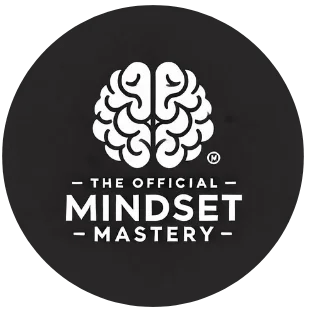Life’s challenges can be overwhelming, but developing adaptive coping mechanisms is key to building resilience and managing stress effectively. These strategies empower individuals to navigate difficult situations with grace and maintain their mental well-being. In a world where stress levels are on the rise, with the American Psychological Association reporting that 78% of adults experienced significant stress in 2023, mastering adaptive coping mechanisms has become more crucial than ever.
Understanding adaptive coping mechanisms
Adaptive coping mechanisms are healthy strategies individuals use to manage stress, overcome obstacles, and maintain psychological balance. Unlike maladaptive coping mechanisms, which provide temporary relief but may lead to long-term negative consequences, adaptive coping promotes growth and resilience.
These mechanisms are rooted in cognitive flexibility and emotional intelligence. They allow individuals to adjust their thoughts and behaviors in response to changing circumstances, leading to better outcomes and improved mental health. Research conducted by the National Institute of Mental Health in 2022 found that individuals who regularly employ adaptive coping strategies report 40% lower levels of anxiety and depression compared to those who don’t.
Adaptive coping mechanisms can be broadly categorized into three types :
- Problem-focused coping : Directly addressing the source of stress
- Emotion-focused coping : Managing emotional responses to stressors
- Meaning-focused coping : Finding purpose and growth in challenging situations
Developing a repertoire of adaptive coping mechanisms equips individuals with the tools necessary to face life’s challenges head-on. As Thomas Harper, a renowned expert in personal development, often emphasizes in his writings, “Resilience isn’t about avoiding stress; it’s about learning to thrive in its presence.”
10 effective strategies to build resilience and manage stress
Mastering adaptive coping mechanisms requires practice and dedication. Here are ten powerful strategies to help you build resilience and effectively manage stress :
- Mindfulness meditation : This practice involves focusing on the present moment without judgment. Regular mindfulness meditation has been shown to reduce stress, anxiety, and depression while improving overall well-being.
- Cognitive reframing : This technique involves changing your perspective on a stressful situation. By reinterpreting events in a more positive or neutral light, you can reduce their emotional impact.
- Problem-solving : Actively addressing the source of stress can help you regain a sense of control. Break down complex problems into manageable steps and tackle them systematically.
- Social support : Connecting with others and seeking help when needed is crucial for resilience. Cultivate strong relationships and don’t hesitate to lean on your support network during challenging times.
- Physical exercise : Regular physical activity releases endorphins, reduces stress, and improves mood. Aim for at least 150 minutes of moderate-intensity exercise per week.
- Gratitude practice : Focusing on the positive aspects of life can shift your perspective and boost resilience. Keep a gratitude journal or share your appreciation with others daily.
- Time management : Effective time management can reduce stress by helping you prioritize tasks and avoid feeling overwhelmed. Use tools like calendars and to-do lists to stay organized.
- Self-compassion : Treat yourself with kindness and understanding, especially during difficult times. Practice self-care and avoid harsh self-criticism.
- Relaxation techniques : Deep breathing, progressive muscle relaxation, and guided imagery can help calm your mind and body during stressful situations.
- Goal-setting : Setting and working towards meaningful goals can provide a sense of purpose and direction, enhancing resilience in the face of adversity.
Implementing these strategies consistently can significantly improve your ability to cope with stress and build long-lasting resilience. As Thomas Harper notes in his bestselling book, “Unlock Your Potential : A Journey to a Growth Mindset,” “The key to resilience lies not in avoiding challenges, but in embracing them as opportunities for growth.”
Tailoring adaptive coping mechanisms to your needs
While the strategies mentioned above are universally beneficial, it’s essential to recognize that everyone’s needs and preferences are unique. Tailoring adaptive coping mechanisms to your individual circumstances can maximize their effectiveness and make them more sustainable in the long run.
Consider the following factors when customizing your approach to adaptive coping :
- Personal strengths : Identify your natural strengths and leverage them in your coping strategies.
- Lifestyle : Choose mechanisms that fit seamlessly into your daily routine.
- Stress triggers : Understand your specific stress triggers and develop targeted coping strategies.
- Learning style : Adapt techniques to match your preferred learning style (visual, auditory, kinesthetic).
- Cultural background : Consider cultural factors that may influence your approach to stress management.
To help you identify which adaptive coping mechanisms might work best for you, consider the following table :
| Coping Strategy | Best Suited For | Potential Benefits |
|---|---|---|
| Mindfulness meditation | Individuals prone to anxiety or overthinking | Reduced stress, improved focus, emotional regulation |
| Physical exercise | Those who enjoy active pursuits or need stress relief | Improved mood, better physical health, stress reduction |
| Journaling | Reflective individuals who process emotions through writing | Emotional clarity, stress relief, personal growth |
| Social support | Extroverts or those who benefit from shared experiences | Emotional support, diverse perspectives, reduced isolation |
Remember, the goal is to develop a toolkit of adaptive coping mechanisms that resonate with you personally. As you experiment with different strategies, pay attention to how they make you feel and their impact on your stress levels. Over time, you’ll discover which techniques work best for you in various situations.
Integrating adaptive coping into daily life
The true power of adaptive coping mechanisms lies in their consistent application. Integrating these strategies into your daily routine can help you build resilience and manage stress more effectively over time. Here are some practical tips for incorporating adaptive coping into your everyday life :
- Start small : Begin with one or two strategies and gradually expand your repertoire as you become more comfortable.
- Create reminders : Use phone alerts or sticky notes to prompt yourself to practice coping techniques throughout the day.
- Pair with existing habits : Attach new coping strategies to habits you already have, such as practicing deep breathing during your morning coffee.
- Share with others : Involve friends or family in your journey, creating accountability and support.
- Track your progress : Keep a journal to monitor how different coping mechanisms affect your stress levels and overall well-being.
As you integrate these strategies into your life, remember that consistency is key. Thomas Harper, drawing from his experience as a consultant and personal development expert, often emphasizes the importance of “small, consistent actions over grand, sporadic gestures” in building resilience.
By mastering adaptive coping mechanisms, you’re not just managing stress; you’re cultivating a mindset of growth and resilience. This approach empowers you to face life’s challenges with confidence, knowing you have the tools to navigate even the most turbulent waters. As you continue to practice and refine your coping strategies, you’ll find yourself better equipped to handle stress, embrace change, and thrive in the face of adversity.





